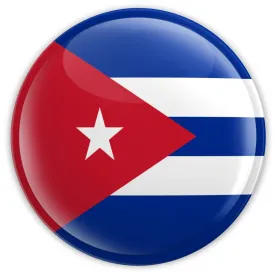With fewer than 100 days left in office, President Obama is not slowing down on his efforts to normalize relations between the United States and Cuba. Today, several changes to the Cuban Assets Control Regulations (CACR) and Export Administration Regulations (EAR) go into effect. Those changes build on the plan President Obama laid out in December 2014 to increase the means for Americans and Cubans to collaborate in business, education, travel, and humanitarian work. The amendments will strengthen the ties between the two countries, stimulate Cuba’s private sector, create commercial opportunities for both the American and Cuban people, and potentially improve the lives of many Cubans. U.S. companies looking to expand into Cuba should review these changes carefully to identify and develop strategies for growth.
We have included some highlights from the updated regulations below that could significantly impact your business (or may prompt you to create a new one!). For the full CACR amendments, click here. For the full EAR amendments, click here.
All Industries
- All Contingent Contracts Authorized. The U.S. Treasury Department, Office of Foreign Assets Control (OFAC) expanded authorization for U.S. companies and individuals to enter into all contingent contracts in Cuba. Prior to today’s changes, U.S. persons could only enter into executory contracts related to goods for export from the United States to Cuba. Under the amended regulations, U.S. persons may enter into any contract with Cuba or Cuban persons, so long as the contract is contingent on obtaining authorization from U.S. regulators for any transactions currently prohibited by the U.S. embargo on Cuba.This is a big deal. The change eases the burden on U.S. companies looking to develop, negotiate, and finalize business opportunities in Cuba for goods, services, or a combination of both.
- Increased Exports of Goods from United States to Cuba. OFAC clarified the authorization enabling exports and reexports involving Cuba. The U.S. Department of Commerce Bureau of Industry and Security (BIS) will generally authorize the export of consumer goods, including goods sold online.This change is key for the development and growth of e-commerce in Cuba. The change will also allow U.S. companies in e-commerce to expand their consumer base and further drive the development of Cuba’s internet accessibility.
Aviation
Security and Safety-related Services in Cuba and to Cubans. U.S. companies and individuals are now authorized to provide a wide array of services aimed at promoting safety in civil aviation and the safe operation of commercial aircraft to Cuba and Cuban individuals and companies. For American aviation companies, as more and more travel increases between the two countries, these changes will greatly expand economic opportunities in Cuba’s burgeoning aviation industry.
Energy and Construction
Work on Cuban Infrastructure. U.S. companies and individuals are now authorized to provide services to develop, repair, maintain, and enhance infrastructure in Cuba. Under the regulations, “infrastructure” is defined broadly to include systems and assets used to provide the Cuban people with goods or services produced sectors such as public transportation, water and waste management, non-nuclear electricity generation, electricity distribution, hospitals, public housing, and primary and secondary schools. For American construction companies and contractors, this amendment potentially opens up a wide range of opportunities to provide construction-related services to assist in building and repairing Cuba’s infrastructure that will enable travel and commerce to increase between the United States and Cuba.
Healthcare, Medical Devices, and Pharma
Collaboration with Cuban Researchers and Medical Companies. U.S. companies and individuals may now engage in joint medical research projects with Cuban nationals. The authorization applies to both non-commercial and commercial research. For American labs, pharmaceutical companies, and universities, these changes create significant opportunities for collaboration to bring more Cuban scientists and researchers into medical and scientific innovation.
Travel
Monetary Limit on Cuban Imports While Traveling. The regulations no longer limit the value of goods that American travelers may bring back in their luggage when returning from Cuba! The agency press release specifically highlights the removal of value limits on Cuban-origin alcohol and tobacco products. In addition, travelers may purchase Cuban-origin goods outside of Cuba and bring the goods back to the United States in their luggage. In both cases, the products may only be for personal use, and of course, the normal duty and tax exemptions still apply. Formerly the limit was 400 USD of total goods, 100 of which could be alcohol or tobacco products or about the price of 3 of the best Cohibas. Now you can bring home a box!
As ever, we will continue to monitor updates on the breakdown of economic barriers between the United States and Cuba. As these historic changes occur, companies should always remain vigilant to stay compliant with the regulations while capitalizing on the newly created business opportunities.




 />i
/>i

